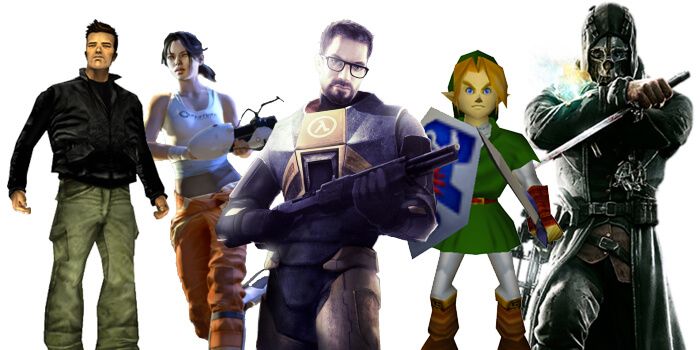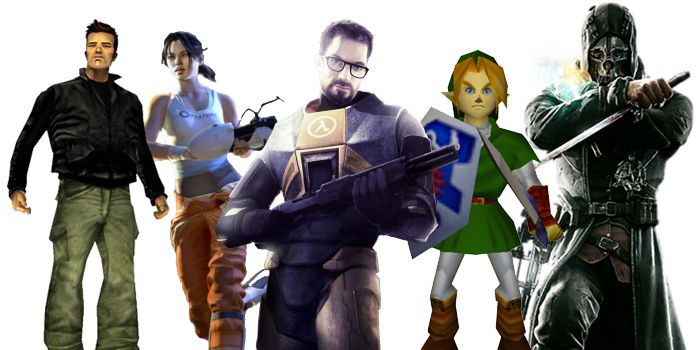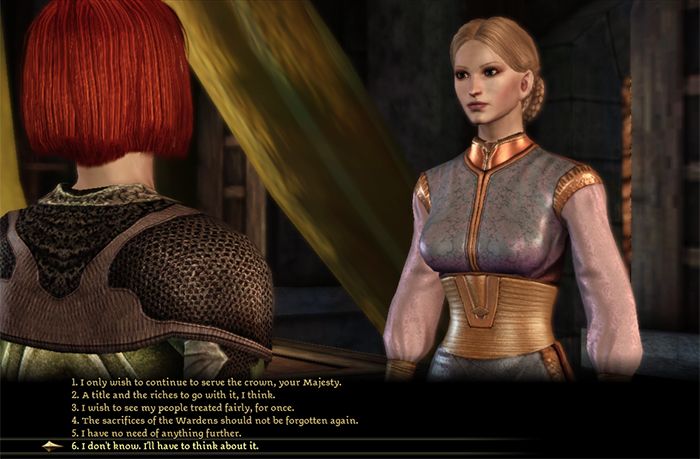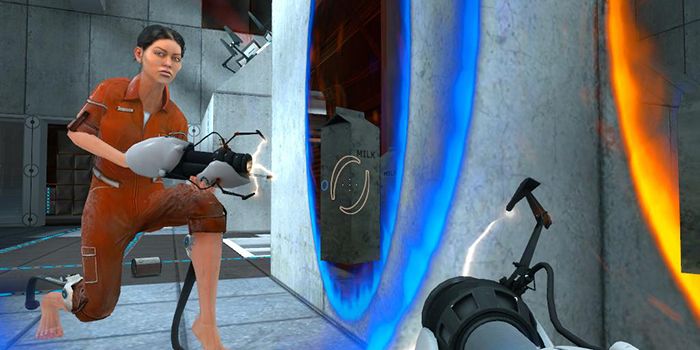While some heroes have a witty retort for every situation they find themselves in, others prefer to let someone else do the talking. The silent protagonist has been a staple of gaming going back to the original Super Mario Bros. and NES, when dialog was only text on a screen. Creating voices on early systems was difficult, and early stories were simple—jump on a few enemies' heads and make it to the castle just in time to find that the princess isn't even there. Maybe next time.
Things have changed a lot since Bowser first gave us the slip. Modern video game stories are increasingly complex, and while most games now feature voiced heroes, the silent protagonist endures, a quiet, noble figure on a quest. Some may say it's getting a little old—if technological restrictions no longer apply, why are we still seeing games where the player character's dialog is restricted to an occasional grunt of pain? Is it time to retire the mutes and mutterers in favor of characters with a little personality and verbal panache?
Silent Protagonist Pros
One could argue that silent protagonists are the result of laziness or a lack of creativity on the part of game writers but, of course, that's not necessarily true. The "strong, silent type" hero is a popular artistic preference among certain devs, and resource or budget limitations can cut voice acting from the equation altogether—especially in the indie world.
There are other justifications for silent protagonists beyond limitations. Another point in favor of silent protagonists is the occasional complaint that voice acting can taint dialog choices with undesirable tones or inappropriate phrasing. This is totally valid, and an especially big problem in BioWare RPGs, where a relatively benign conversation option ("I disagree") can become an insult ("You're ignorant and I hate you") due to space constrictions on the dialog wheel.
Some gamers and devs liken the silent protagonist to a blank slate, a tabula rasa onto which players can project their story and experiences. This is a common response to criticisms of Half-Life 2's Gordon Freeman. Despite being party to many in-game conversations, Freeman never utters a word over the course of the game. Supporters argue that leaving him silent enables players to respond in whichever way they think fits the game best, and helps them envision themselves in Freeman's place.
Silent Protagonist Cons
The blank slate justification has merit, but ultimately feels like a cop-out. Half-Life 2 is a fantastic game and one of the defining first-person shooters. The inventive, interactive cutscenes that don't strip the player of control are nice, but a protagonist who doesn't respond to things like aliens or huge robot "dogs" feels more like a void than a blank slate. Freeman has a history and a name and a role to play, but he also isn't much of a character. Players get very little sense of who Freeman is, other than his job and his handiness with a crowbar. If devs had given him a voice, how much richer would our understanding of Freeman's character be?
Off-putting voice tone or phrasing is annoying, but that's an oversight during development; it's not a reason to support the gagging of game protagonists. When your Paragon Shepard makes a nasty remark because the voice actor's tone didn't match the one in your head, it's a bummer, but is total silence better?
Meaningful Silence
BioWare's Dragon Age: Origins and Bungie's Halo series don't use much recorded dialog for their protagonists—the Hero of Ferelden and Master Chief—yet neither character feels like an entirely blank slate. This suggests there's room for compromise in the silent protagonist vs. speaking protagonist debate.
Obviously, not all silent protagonists are bad. Chell, from Valve's Portal series, is a silent protagonist done right. Characters like GLaDOS, Wheatley, and even the turrets more than make up for Chell's silence, adding contrasting depth to her character. Making Chell just as witty as everyone else could arguably ruin the game's pacing. Chell never riles to GLaDOS's endless insults or gets beaten down by her malice, demonstrating her determination silently, in a way that feels like a choice rather than a limitation. Granted, this is undone somewhat in the second game, when Wheatley supposes that Chell's silence is due to brain damage (which is quite possibly erroneous—Wheatley is hardly a reliable character). Because Chell is never really alone, thanks to the constant berating from her AI overseers, her silence feels intentional as opposed to a character omission.
Tongue-Tied Versus Talkative
Overall, successful silent protagonists seem more the exception than the rule. No matter the reasons behind the muteness, when devs constantly rely on players to project meaning onto blank-slate, silent protagonists, it feels like cheating. It also doesn't help players identify with game characters.
We don't need protagonists who are trash-talking, quipping, opining, or emoting at every turn, but a character who never speaks can be just as distracting or disheartening as a character whose speech feels disingenuous. And at the end of the day, it's infinitely more enjoyable to accompany a compelling character with a voice and a heart and a point-of-view on their journey—not a passive avatar bobbing blankly in their silent void.




